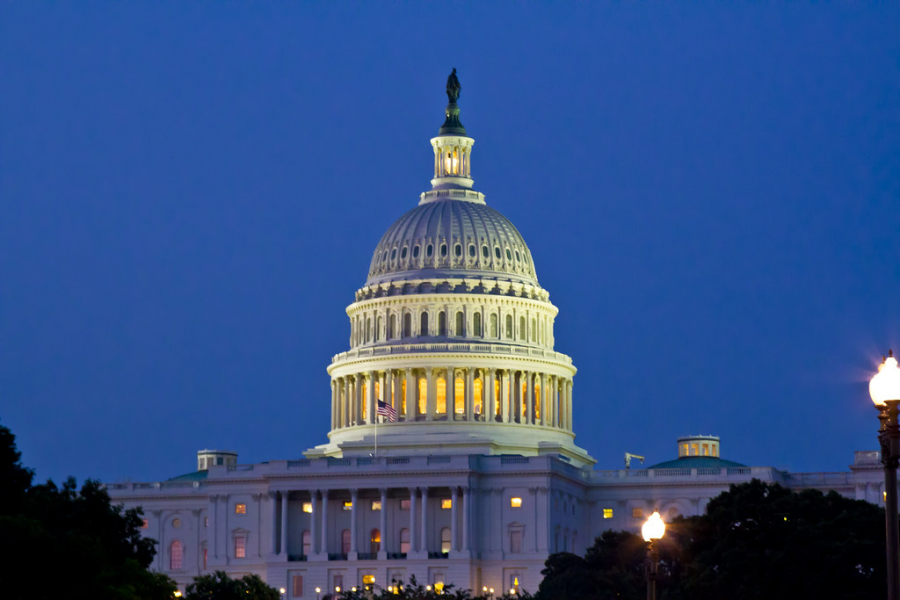Trump acquitted; how does America move forward?
KP Tripathi (creativecommons.org)
“Capitol Hill, Washington DC”
On Saturday, Feb. 13, America saw the most bipartisan impeachment trial in its history. On Feb. 9, the United States Senate began a second impeachment trial against highly controversial 45th president, Republican Donald J. Trump. This trial was to determine if the former president’s role in the Jan. 6 Capitol riots was significant enough to qualify as inciting insurrection, thus garnering impeachment.
Opening arguments from the prosecuting Senate Democrats began on Feb. 9 after an opening prayer from Chapelin Barry Black, and concluded two days later on Feb. 11. Senate Democrats outlined the events of Jan. 6 with video footage of the insurrection in an attempt to establish the connection with the former president’s behavior leading up to the day, mainly focusing on Trump’s election fraud claims.
The following day, on Feb. 12, Donald Trump’s defense lawyers laid out their testimony. The defense team did not attempt to dispute the former president’s role in the Jan. 6 riots, instead claiming that the trial was motivated by Senate Democrats’ disdain for Trump. It became clear that this was not a trial to determine right or wrong—it was a trial to determine if Trump played a big enough role in the riots to justify impeachment.
The Trump defense team claimed that while Trump’s actions lacked morality, they did not violate his oath to the office or any legal law. The Associated Press reported that the defense had a written document that contained the statement: “the Senate cannot blithely side with the First Amendment.”
The next day, on Feb. 13, the Senate conducted the vote. At its conclusion, the count totaled at 57 votes to convict including seven Senate Republicans and 43 votes to acquit—the most bipartisan impeachment vote in history, but still 10 votes short of the two-thirds majority needed for conviction. For a second time in a four-year tenure, Trump had been tried and acquitted of impeachment.
The New York Times reported on Feb. 16 that one of the Republican senators who voted to convict, Richard Burr of North Carolina, was censured by the North Carolina Republican Party. The Rolling Stone reported that Louisiana senator Bill Cassidy, another of the seven Republicans that voted to convict, also now faces censure from his party.
As the fallout from the trial continues, it is important for Americans to consider how to move on. It is no secret that political discourse across our country has become much more volatile in recent years and tensions are as high as most mountains.
Zach Crane, President of the Guilford College Republicans, gave his perspective on the dilemma of division within our country and especially within the Guilford community.
“It depends on who you are and the factors that have influenced you,” Crane stated. “Both sides have their extremes and it’s okay to feel strongly about issues.”
When asked about how that divisiveness hinders civil discourse, Crane made an interesting point about social media.
“Social media doesn’t help the divide that has been built over time… we aren’t together physically right now; I could be as disrespectful as I want to be toward you and there would be no consequence for that.”
While this problem seems like a hill that will be impossible to climb, Crane remains hopeful.
“We definitely need to work on it, but I believe we can get there,” he said. ‘The one thing I think all Americans can agree with is that a united America is better than a divided one.”










